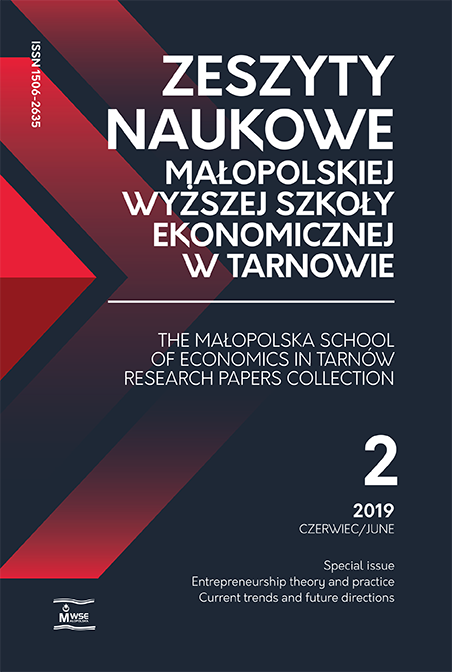Abstract
Social entrepreneurship is an important tie between businesses and altruism; it is seen as an implication of entrepreneurship in the social environment. Social entrepreneurship aggregates the skillfulness of traditional entrepreneurship with a goal to change the world. It offers insights that may find out ideas for more socially acceptable and sustainable business strategies and contributes to global sustainable development goals and it may also encourage firms to undertake more social responsibility. Accordingly, the aim of this study is to investigate the supports of Turkish food companies to the sustainable development goals through corporate social responsibility. In the study, content analysis method is used to analyze the data gathered from web sites of Turkey’s most valuable food brands according to the Brand Finance Report. The results of the study highlights that most valuable Turkish food brands support the sustainable development goals through corporate social responsibility practices mostly in the areas such as quality education, reduced inequalities, good health and well-being, responsible production and consumption, zero hunger, no poverty, gender equality, sustainable cities and communities.
References
Alvord, S. H., Brown, D. L., Letts, C. W. (2004). Social entrepreneurship and societal transformation: An exploratory study. The Journal of Applied Behavioral Science, 40 (3), 260–283.
View in Google Scholar
Austin, J., Stevenson, H., Wei-Skillern, J. (2006). Social and commercial entrepreneurship: Same, different, or both? Entrepreneurship Theory and Practice, 30 (1), 1–22.
View in Google Scholar
Baron, D. (2005). Corporate social responsibility and social entrepreneurship [online, accessed: 2019-01-25]. Retrieved from: https://papers.ssrn.com/sol3/papers.cfm?abstract_id=861145.
View in Google Scholar
Brainard, L. A., Siplon, P. D. (2004). Toward nonprofit organization reform in the voluntary spirit: Lessons from the Internet. Nonprofit and Voluntary Sector Quarterly, 33 (3), 435–457.
View in Google Scholar
Brand Finance (2018). Turkey 100: Türkiye’nin En Değerli Markalarının Yıllık Raporu [online, accessed: 2019-01-20]. Haziran. Retrieved from: http://brandfinance.com/images/upload/brand_finance_turkey_100_2018.pdf.
View in Google Scholar
Certo, S. T., Miller, T. (2008). Social entrepreneurship: Key issues and concepts. Business Horizons, 51, 267–271.
View in Google Scholar
Chella, E., Nicolopouloua, K., Karataş, M. (2010). Social entrepreneurship and enterprise: International and innovation perspectives. Entrepreneurship and Regional Development, 22 (6), 485–493.
View in Google Scholar
Dees, J. G. (1998). Enterprising nonprofits: What do you do when traditional sources of funding fall short? Harvard Business Review, 76, 55–67.
View in Google Scholar
Dees, J. G., Anderson, B. B. (2003). For-profit social ventures. International Journal of Entrepreneurship Education, 2 (1), 1–26.
View in Google Scholar
Elkington, J., Hartigan, P. (2008). The power of unreasonable people: How social entrepreneurs create markets that change the world. Boston, MA: Harvard Business Press. ISBN 9781422104064.
View in Google Scholar
Emerson, J., Twersky, F. (1996). New social entrepreneurs: The success, challenge and lessons of non-profit enterprise creation. San Francisco, CA: Roberts Foundation Homeless Economic Development Fund.
View in Google Scholar
Haugh, H. (2007). New strategies for a sustainable society: The growing contribution of social entrepreneurship. Business Ethics Quarterly, 17 (4), 743–749.
View in Google Scholar
Kao, R. (1993). Defining entrepreneurship, past and present. Creativity and Innovation Management, 2, 69–70.
View in Google Scholar
Leadbeater, C. (1997). The rise of the social entrepreneur. London: Demos. ISBN 9781898309536.
View in Google Scholar
Mair, J., Marti, I. (2006). Social entrepreneurship research: A source of explanation, prediction and delight. Journal of World Business, 41, 36–44.
View in Google Scholar
Martin, R. L., Osberg, S. (2007). Social entrepreneurship: The case for definition. Stanford Social Innovation Review, 1 (6), 28–39.
View in Google Scholar
Neuman, W. (2003). Social research methods: Qualitative and quantitative approaches. Boston: Allyn and Bacon. ISBN 0205374077.
View in Google Scholar
Roberts, D., Woods, C. (2005). Changing the world on a shoestring: The concept of social entrepreneurship. University of Auckland Business Review, 45–51.
View in Google Scholar
Seelos, C., Mair, J. (2005). Social entrepreneurship: Creating new business models to serve the poor. Business Horizons, 48, 241–246.
View in Google Scholar
Shane, S., Venkataraman, S. (2000). The promise of entrepreneurship as a field of research. Academy of Management Review, 25 (1), 217–228.
View in Google Scholar
Spear, R. (2006). Social entrepreneurship: A different model? International Journal of Social Economics, 33 (5–6), 399–410.
View in Google Scholar
Tan, W. L., John, W., Tan, T. M. (2005). Defining the ‘social’ in ‘social entrepreneurship’: Altruism and entrepreneurship. International Entrepreneurship and Management Journal, 1, 353–365.
View in Google Scholar
Thompson, J. L. (2002). The world of the social entrepreneur. The International Journal of Public Sector Management, 15 (4–5), 412–432.
View in Google Scholar
World Bank. (2003). World development report 2004: Making services work for poor people. Oxford: Oxford University Press. ISBN 9786610086931.
View in Google Scholar
World Commission on Environment and Development. (1987). Our common future. Oxford: Oxford University Press. ISBN 019282080X.
View in Google Scholar
Zahra, S. A., Gedajlovic, E., Neubaum, D. O., Shulman, J. M. (2009). A typology of social entrepreneurs: Motives, search processes and ethical challenges. Journal of Business Venturing, 24, 519–532.
View in Google Scholar
Zahra, S. A., Rawhouser, H. N., Bhawe, N., Neubaum, D. O., Hayton, J. C. (2008). Globalization of social entrepreneurship opportunities. Strategic Entrepreneurship Journal, 2 (2), 117–131.
View in Google Scholar
© Copyright by Małopolska School of Economics in Tarnów. The articles are available under the Creative Commons Attribution NonCommercial-NoDerivatives 4.0 International License


